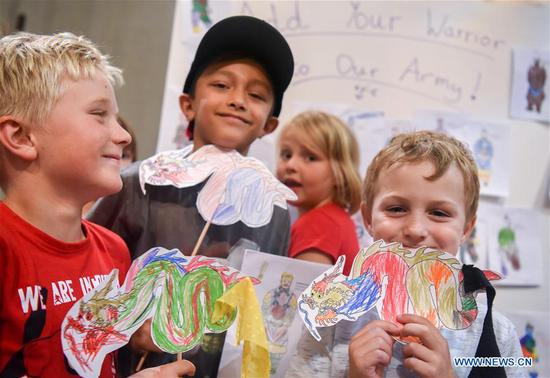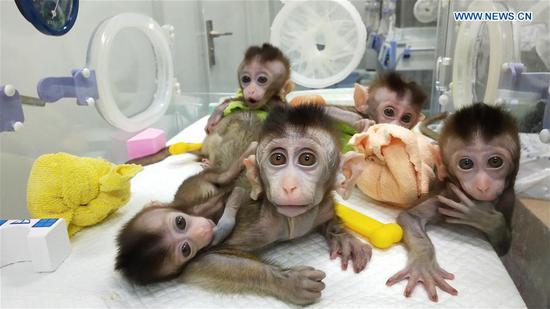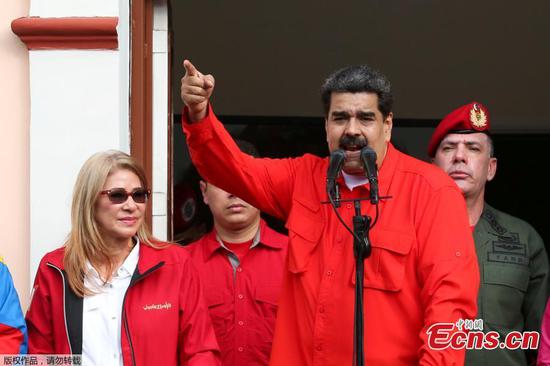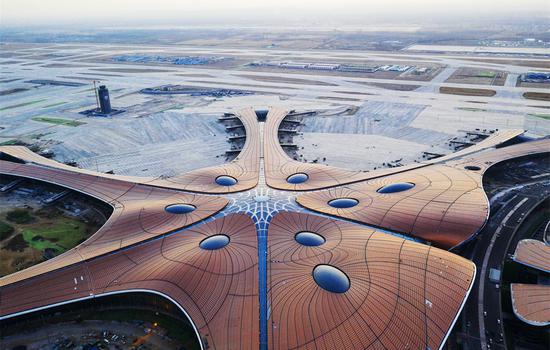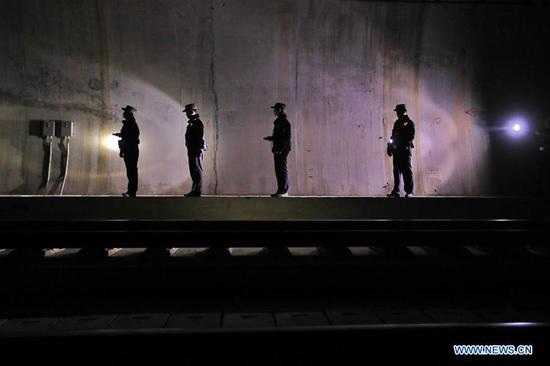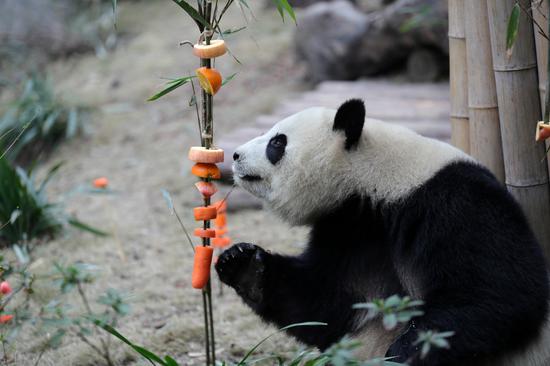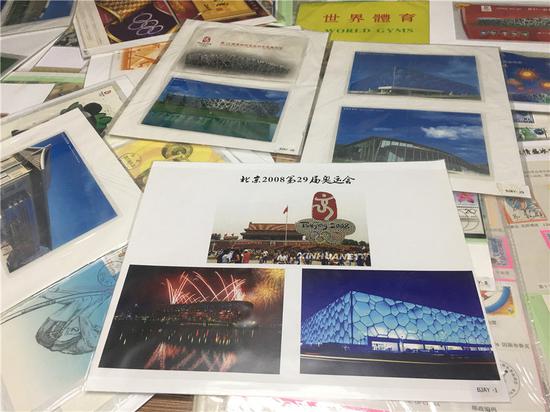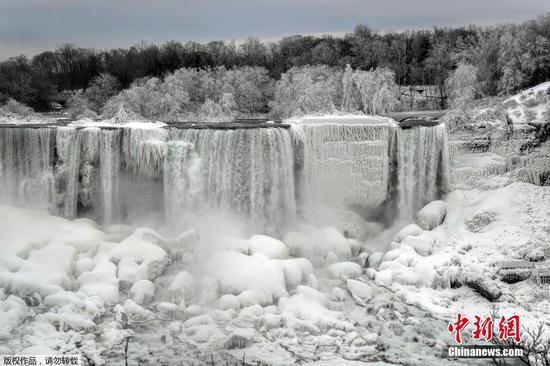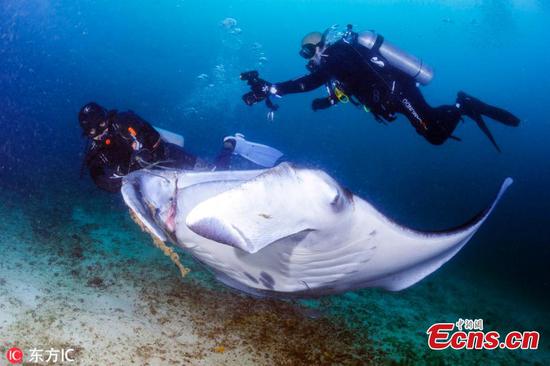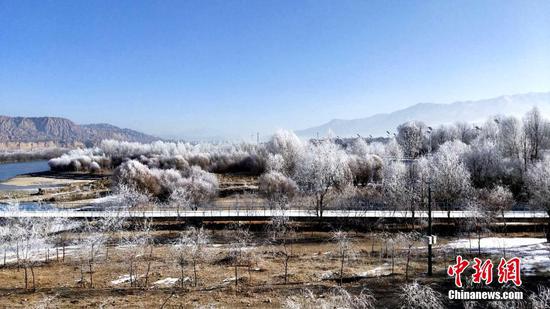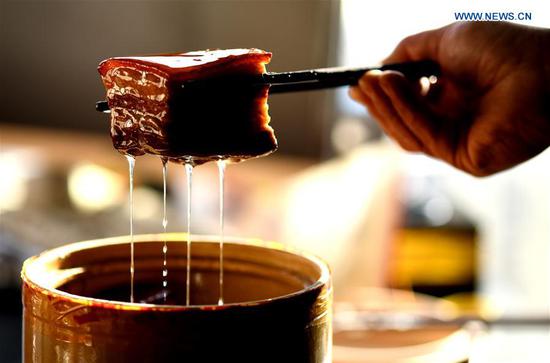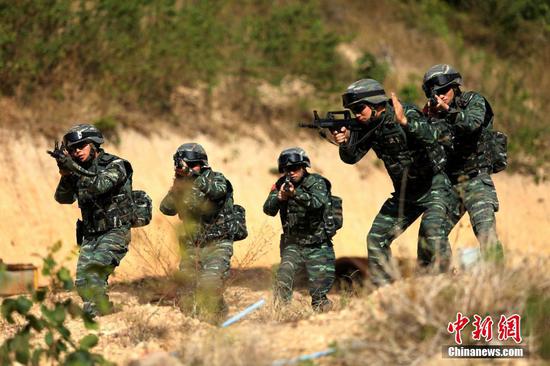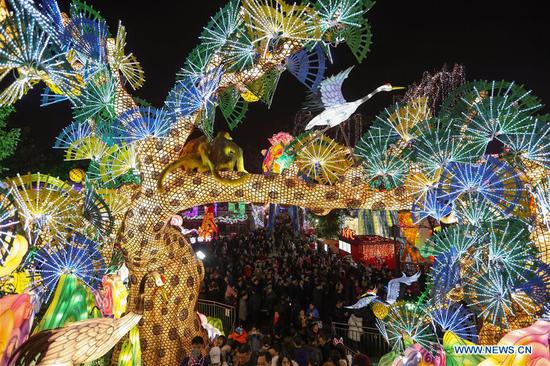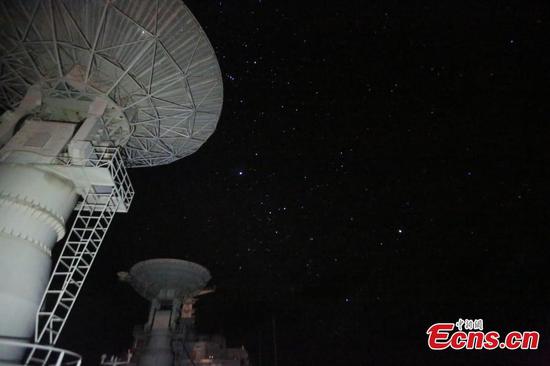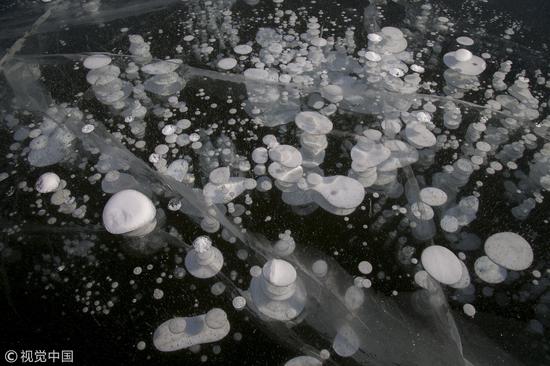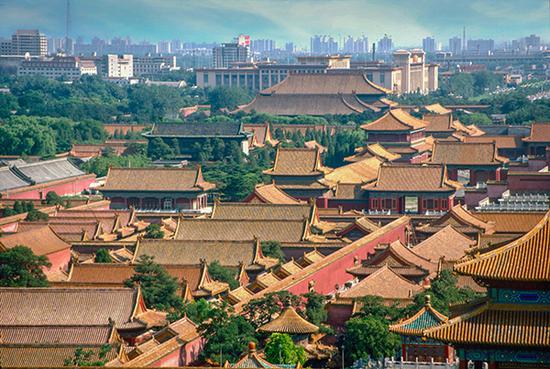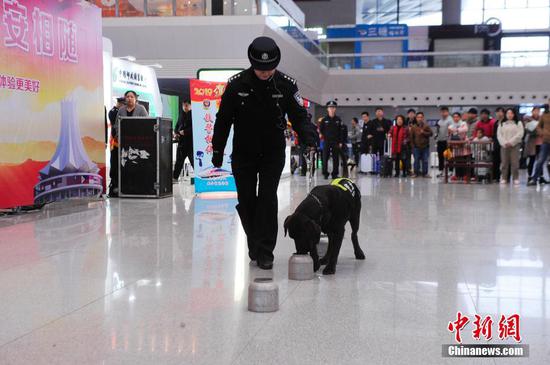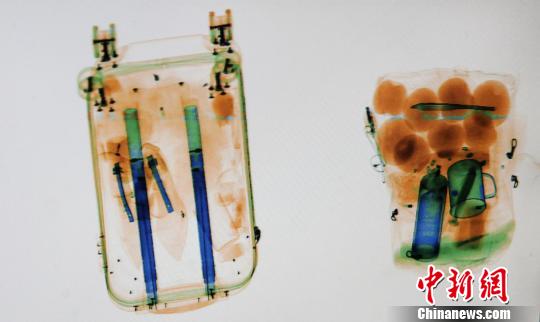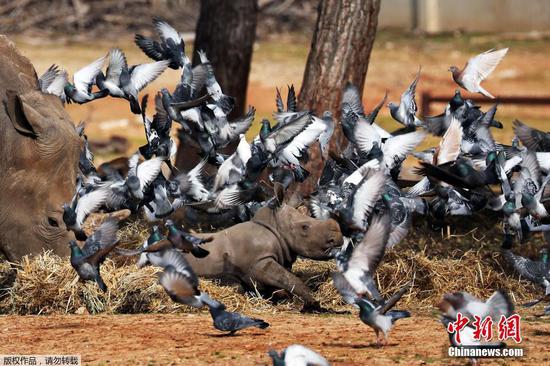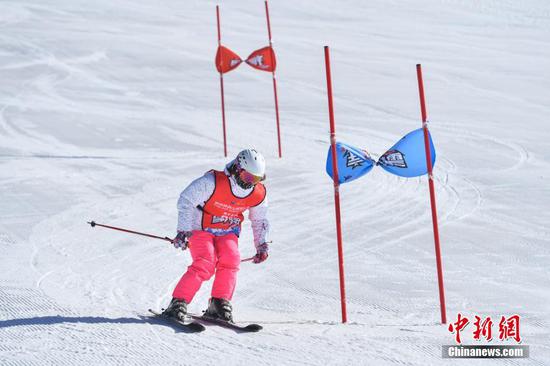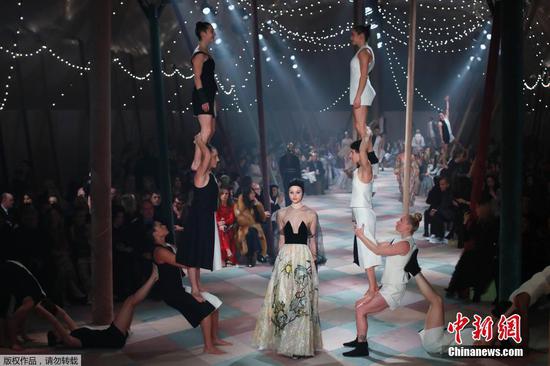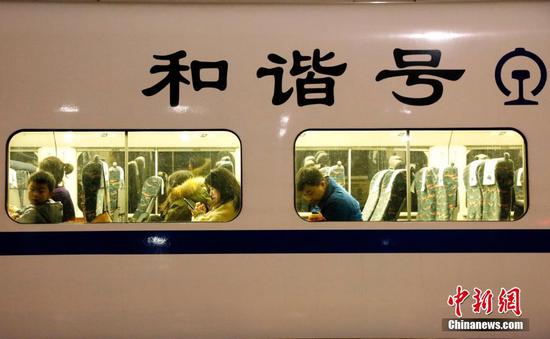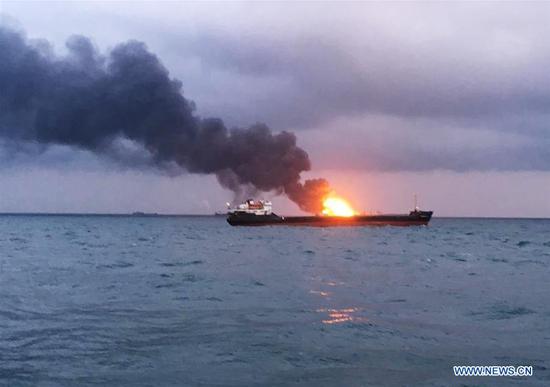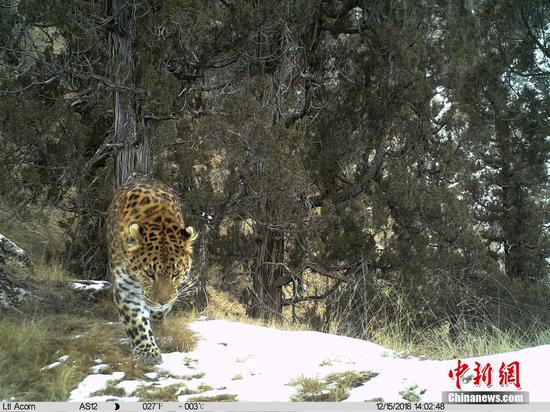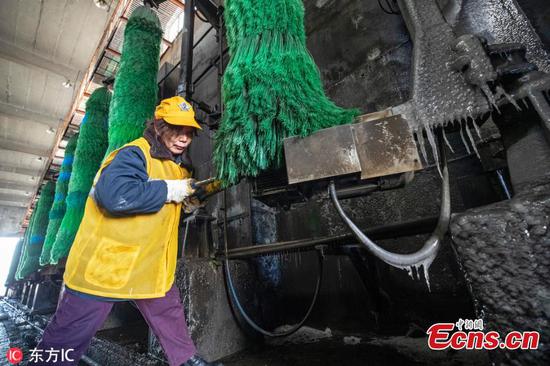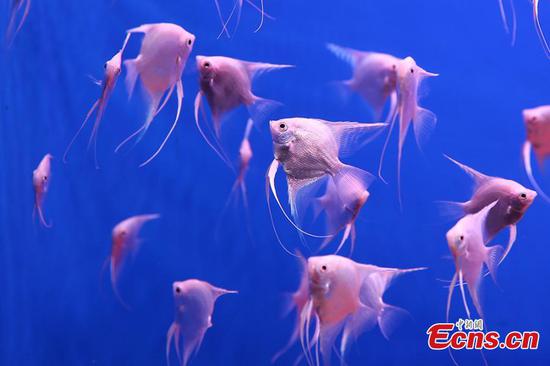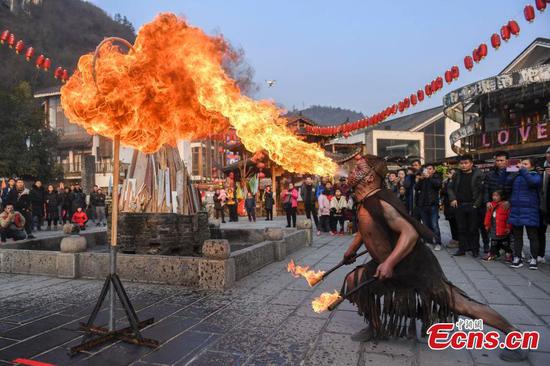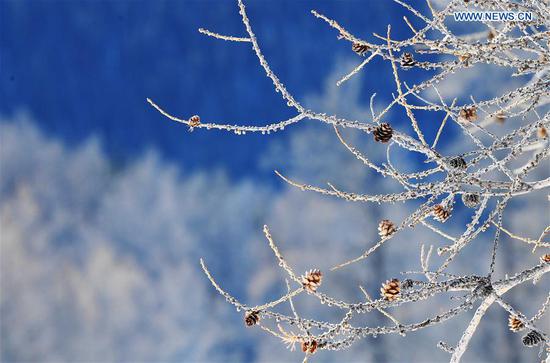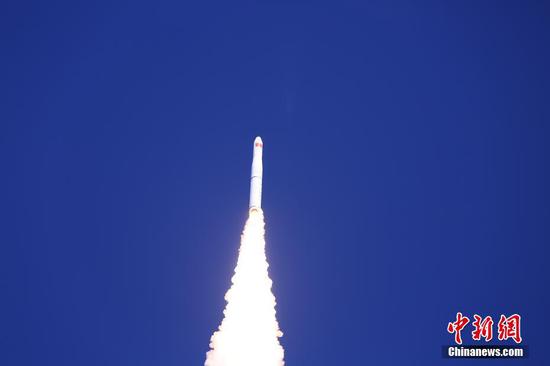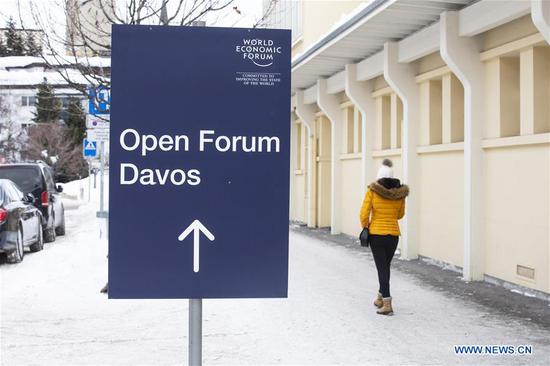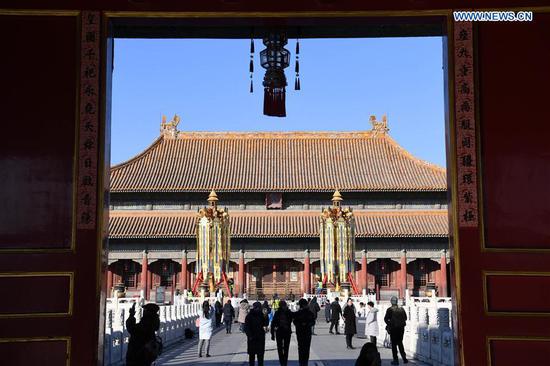Abe's visit to Moscow marks the 25th time he and Putin have met since 2013
Russian President Vladimir Putin and Japanese Prime Minister Shinzo Abe held talks in Moscow on Tuesday seeking to resolve a conflict over a disputed island chain that has long prevented the two neighbors from concluding a peace treaty to formally end World War II.
The meeting was seen as a good step for the bilateral relationship in 2019, but Russian media said there is still a long way to go to resolve the decades-old territorial dispute.
Abe's visit marks the 25th time he and Putin have met since 2013, a reflection of their efforts to increase cooperation between the countries despite the disagreement over the island chain-known as the Kurils in Russia, and the Northern Territories in Japan.
Putin said he was glad that meetings with Abe have become "quite regular", allowing the two leaders to discuss issues related to fostering bilateral relations and the situation in the region.
Abe said bilateral relations between Japan and Russia have brought about substantial results under the framework of mutual cooperation plans in various areas.
Abe noted that 2018 was a turning point for Japanese-Russian relations, and pointed out that there are more important events planned in Japan in 2019, such as the G20 summit in Osaka, Japan.
Abe's Moscow visit is the first leg of a trip to Europe, which will also take him to Switzerland to attend the World Economic Forum in Davos.
Abe said in an interview published on Monday by Russia's Kommersant daily that he and Putin have fully agreed to resolve the dispute "with our own hands and not pass the problem on to future generations".
The Soviet army took the four islands, between the Sea of Okhotsk and the Pacific Ocean, in the last days of World War II.
Tokyo's refusal to recognize Moscow's sovereignty over the islands has blocked the path to peace for more than seven decades.
Despite a flurry of diplomacy since November, when the two leaders agreed to step up peace talks, recent statements from both capitals have dampened hopes of a breakthrough.
Significant results unlikely
Negotiations between Russia and Japan could be difficult, however, the desire and will of the two leaders to fully normalize relations remains, Russian newspaper Izvestia wrote.
But added that significant results are unlikely to be achieved.
Japanese Chief Cabinet Secretary Yoshihide Suga told a news conference on Wednesday that "a frank and serious discussion was held. …The two leaders also discussed Japan-Russia cooperation in various fields and I think it is a very good start for the Japan-Russia relationship in 2019."
When asked what advancement on territorial disputes had been made in this meeting compared with the last one, Suga said he had to withhold the content and details.
Japanese Foreign Ministry spokesman Takeshi Osuga refused to say whether or not the atmosphere of Tuesday's meeting was affected by Russian Foreign Minister Sergey Lavrov's criticism, but portrayed the frequency of Putin-Abe contacts as a favorable sign.
"This was the fourth summit meeting (between Abe and Putin) within six months," Osuga told reporters. "This is in general something exceptional, ... it's not something we see very often in diplomacy."
Kyodo News wrote in an opinion piece on Wednesday: "A solution of disputed islands that receives public support from Japanese and Russians is very difficult," adding that Abe will be required to "bear a heavy responsibility of explanation" if the disputes is settled by Russia returning just two of the four islands.
"Meanwhile, demonstrations against the transfer of the islands have already occurred in various places in Russia. … The future is not optimistic," it said.
On Sunday, about 500 protesters gathered on Suvorovskaya Square, outside Moscow city center, for an authorized rally called by several nationalist politicians opposing any move to cede any of the four islands.
Meanwhile, a poll by an independent Russian pollster-the Levada Center-last month suggested that 74 percent of Russians would not support exchanging some of the islands for a peace deal, while only 17 percent said they would.









